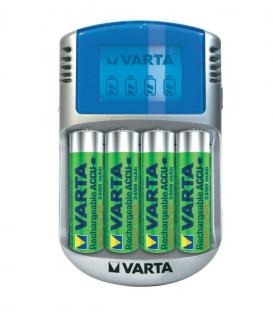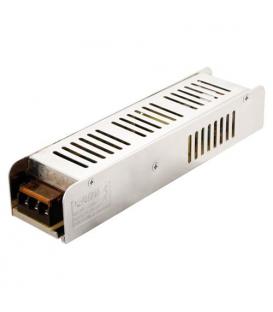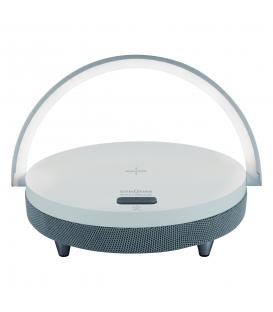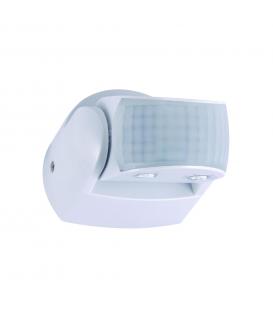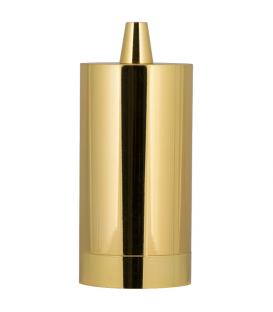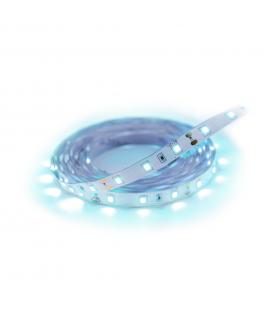Ni MH rechargeable batteries and chargers eco friendly power solutions

Nickel-Metal Hydride (Ni-MH) rechargeable batteries are a type of secondary battery that uses a combination of a nickel oxide positive electrode (cathode), a hydrogen-absorbing negative electrode (anode), and an alkaline electrolyte. These batteries are designed to be recharged and reused multiple times, making them a more environmentally friendly alternative to disposable alkaline batteries.
Explanation: Ni-MH batteries operate based on the principle of electrochemical reactions. During discharge (when the battery is in use), the chemical reactions between the nickel oxide and hydrogen-absorbing alloy create an electric current. When charging, the process is reversed: an external voltage is applied to force the hydrogen back into the negative electrode and restore the battery's capacity.
Benefits:
- Rechargeability: Ni-MH batteries can be recharged hundreds or even thousands of times, reducing the need for frequent battery replacement and decreasing waste.
- Energy Density: Ni-MH batteries offer higher energy density than traditional Ni-Cd (nickel-cadmium) batteries, resulting in longer runtimes and improved device performance.
- No Memory Effect: Ni-MH batteries do not suffer from memory effect, a phenomenon that reduces battery capacity if they are not fully discharged before recharging.
- Lower Toxicity: Ni-MH batteries contain less toxic materials than Ni-Cd batteries, making them more environmentally friendly.
- Moderate Self-Discharge: While Ni-MH batteries have a higher self-discharge rate compared to lithium-ion batteries, modern Ni-MH variants have been improved to reduce this effect.
Areas of Applications:
- Consumer Electronics: Ni-MH batteries are commonly used in devices like digital cameras, portable audio players, cordless phones, and remote controls, where rechargeable options are preferred over disposable batteries.
- Power Tools: Many cordless power tools, such as drills, saws, and screwdrivers, use Ni-MH batteries due to their high energy density and ability to deliver sufficient power.
- Hybrid and Electric Vehicles: Ni-MH batteries have been used as auxiliary batteries in hybrid vehicles and some early electric vehicles due to their durability and ability to handle high current demands.
- Emergency Lighting: Ni-MH batteries are used in emergency lighting systems where reliable backup power is crucial.
- Medical Devices: Portable medical devices, such as infusion pumps, blood pressure monitors, and portable defibrillators, often use Ni-MH batteries for their rechargeable and reliable power source.
- Renewable Energy Storage: Ni-MH batteries can be used to store excess energy from renewable sources like solar panels or wind turbines for later use.
Chargers: To maximize the benefits of Ni-MH batteries, it's essential to use compatible chargers. These chargers typically have the following features:
- Delta-V Charging: This technique monitors the voltage and reduces the charging current when the battery is nearly fully charged, preventing overcharging.
- Trickle Charging: After the battery is fully charged, the charger switches to a low current to maintain the battery's charge level without overcharging.
- Individual Charging Channels: Some chargers have separate charging channels for each battery, ensuring that each cell is charged optimally.
- Fast Charging: Modern Ni-MH chargers can offer faster charging times while still ensuring the safety and longevity of the batteries.
- Smart Charging: Advanced chargers can analyze and adjust the charging parameters based on the battery's condition and chemistry.
Overall, Ni-MH rechargeable batteries and chargers offer a versatile and eco-friendly solution for various applications, providing reliable and reusable power sources while minimizing environmental impact.
Browse our "Ni-MH Rechargeable batteries and chargers" collection
Ni-MH Rechargeable Batteries & Chargers: Eco-Friendly Power Solutions
- 15,98 €Discover the power of the HR9V 9V 200mAh NiMH rechargeable battery. Ready to use and long-lasting, this Accu is...
- 59,14 €Power up on-the-go with our LCD Charger 2400mAh. Stay charged with USB and 12V adaptor for Ni-MH Rechargeable...
- 19,82 €Power up on-the-go with the Mini Charger 2100mAh. Stay charged with our Ni-MH Rechargeable batteries and chargers for...
- 33,89 €Power up your devices on the go with our Plug Charger 2100mAh. Stay charged and connected with our Ni-MH Rechargeable...


